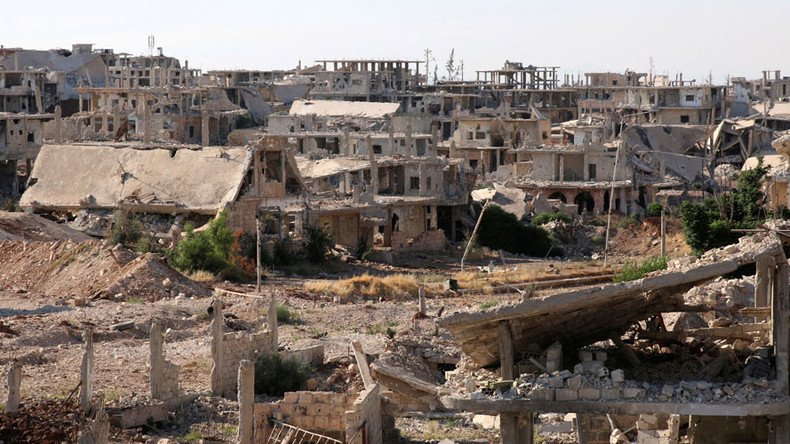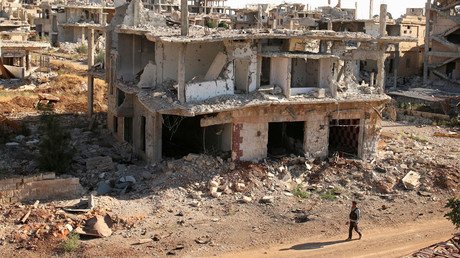Russia to continue cooperation with US on de-escalation zones in Syria – Lavrov

Russia will continue cooperation with the US on de-escalation zones in southern Syria, Russian Foreign Minister Sergey Lavrov said, adding that although a ceasefire agreement came into force on Sunday, it needs to be consolidated.
READ MORE: Ceasefire deal brokered by Russia & US comes into force in southwest Syria
“Regarding the perspectives of our cooperation with the Americans, it will continue through the implementation of those deals agreed on the de-escalation zone in Syria’s southwest. The memorandum from June 7… assumes the development of additional details that would secure how this zone would work in practice. And despite the ceasefire coming into force on Sunday at 12:00 [local time], this [ceasefire] should be consolidated,” Lavrov told reporters in Moscow.
A de-escalation zone helps to “disengage” armed opposition from Islamic State (IS, formerly ISIS/ISIL), Al-Qaeda, Al-Nusra Front (now known as Jabhat Fateh al-Sham) and other groups recognized as terrorists by the UN Security Council.
A monitoring center in the Jordanian capital, Amman, which oversees the truce in Syria, will work directly with the Syrian opposition and government in Damascus, according to the foreign minister.
“We agreed to use a monitoring center established by Russia, the US and Jordan in Amman to coordinate all the details of functioning of these de-escalation zones,” Lavrov said.
Final agreements on de-escalation zones in the areas near Homs and East Ghouta may be reached very soon, Lavrov said, adding that negotiations on Idlib region are still taking place.
The de-escalation zones initiative helps to “normalize relations” between the armed opposition and government forces, according to Lavrov.
The zones create conditions for the parties to “stop fighting each other” and join forces against terrorists, he concluded.
The UN special envoy for Syria, Staffan de Mistura, welcomed the latest ceasefire deal agreed upon by the US, Russia and Jordan, adding that he hoped it would contribute positively to talks between the Syrian government and opposition in Geneva.
.@UN Envoy welcomed recent cease-fire deal supported by Russia, US, Jordan as having potential to change situation on the ground #SyriaTalkspic.twitter.com/7l5Q3ZtKV2
— UN Geneva (@UNGeneva) July 10, 2017
"We believe that de-escalation will be contributing to not only the talks in Geneva and in Astana of course but will also reassure the Syrian people that while we are talking the people are not going to die because of bombs," de Mistura said at a press conference in Geneva.
At the same time, he pointed out that the de-escalation zones should be an interim measure “not undermining Syrian territorial integrity and unity.” He also said that the practical arrangements concerning the de-escalation on the ground should by no means turn into preparation for the creation of de-facto areas of influence or partition of the country.
After their meeting at the G20 summit in Hamburg, Russian President Vladimir Putin and his US counterpart, Donald Trump, announced that a ceasefire deal had been agreed upon for southwest Syria.
READ MORE: US & Russia agree ceasefire in southwest Syria ‒ Lavrov
The ceasefire applies to the Daraa, Quneitra and As-Suwayda provinces, and came into effect on Sunday.














